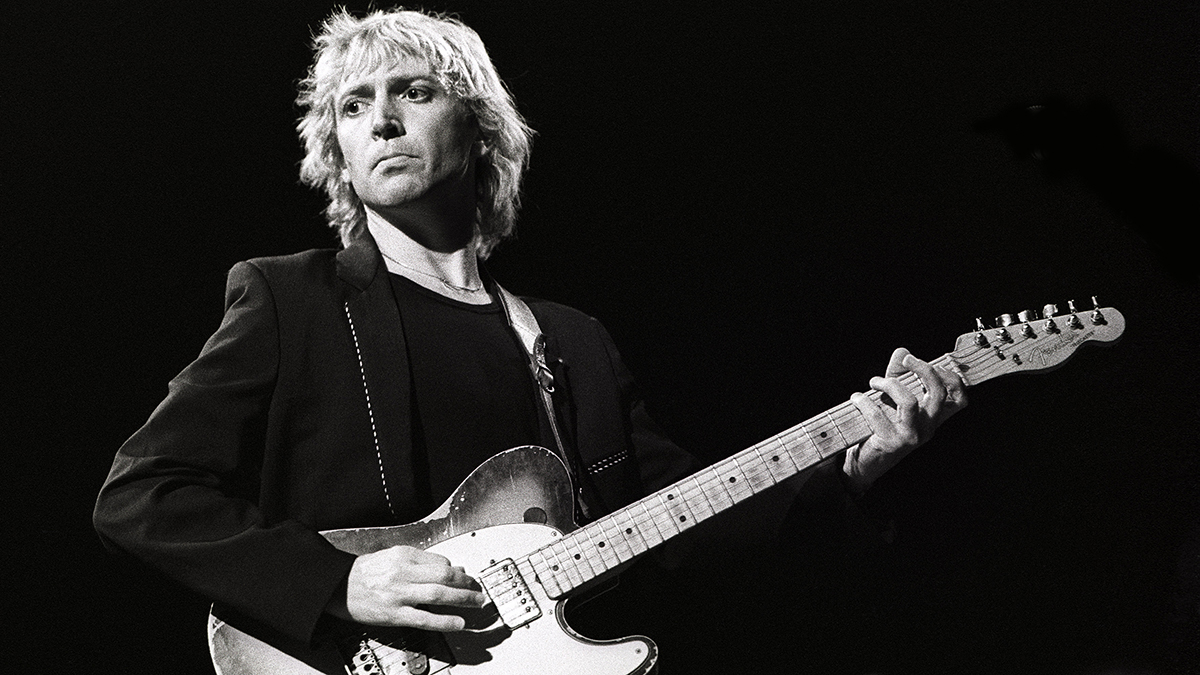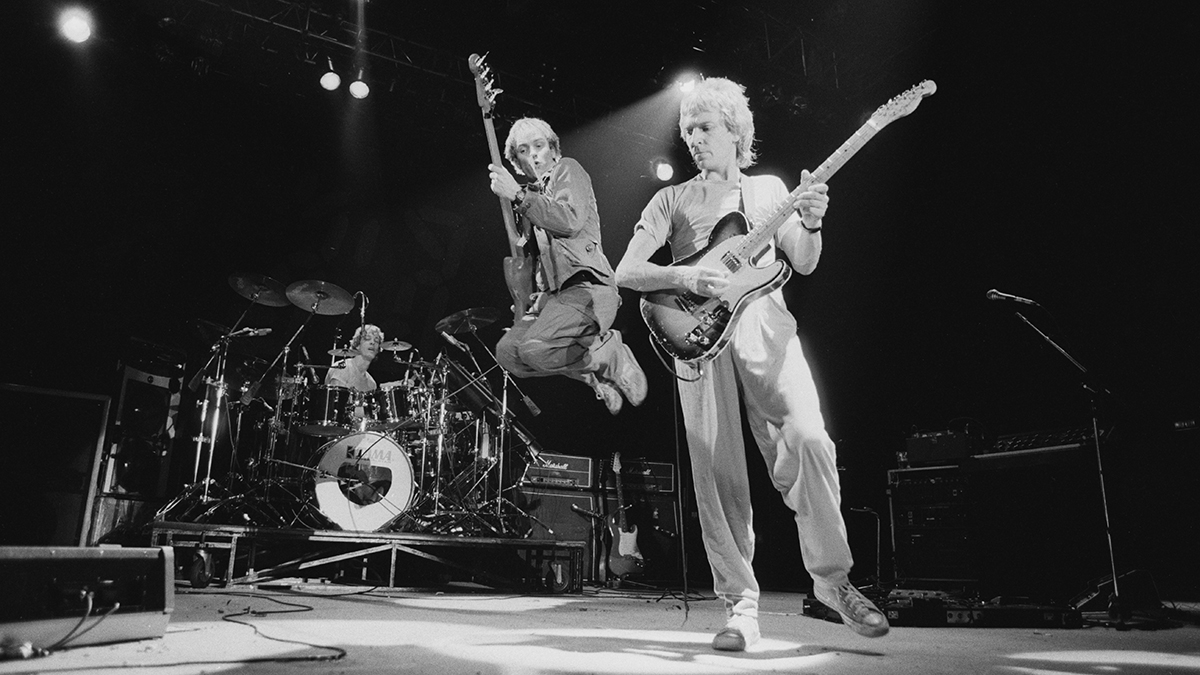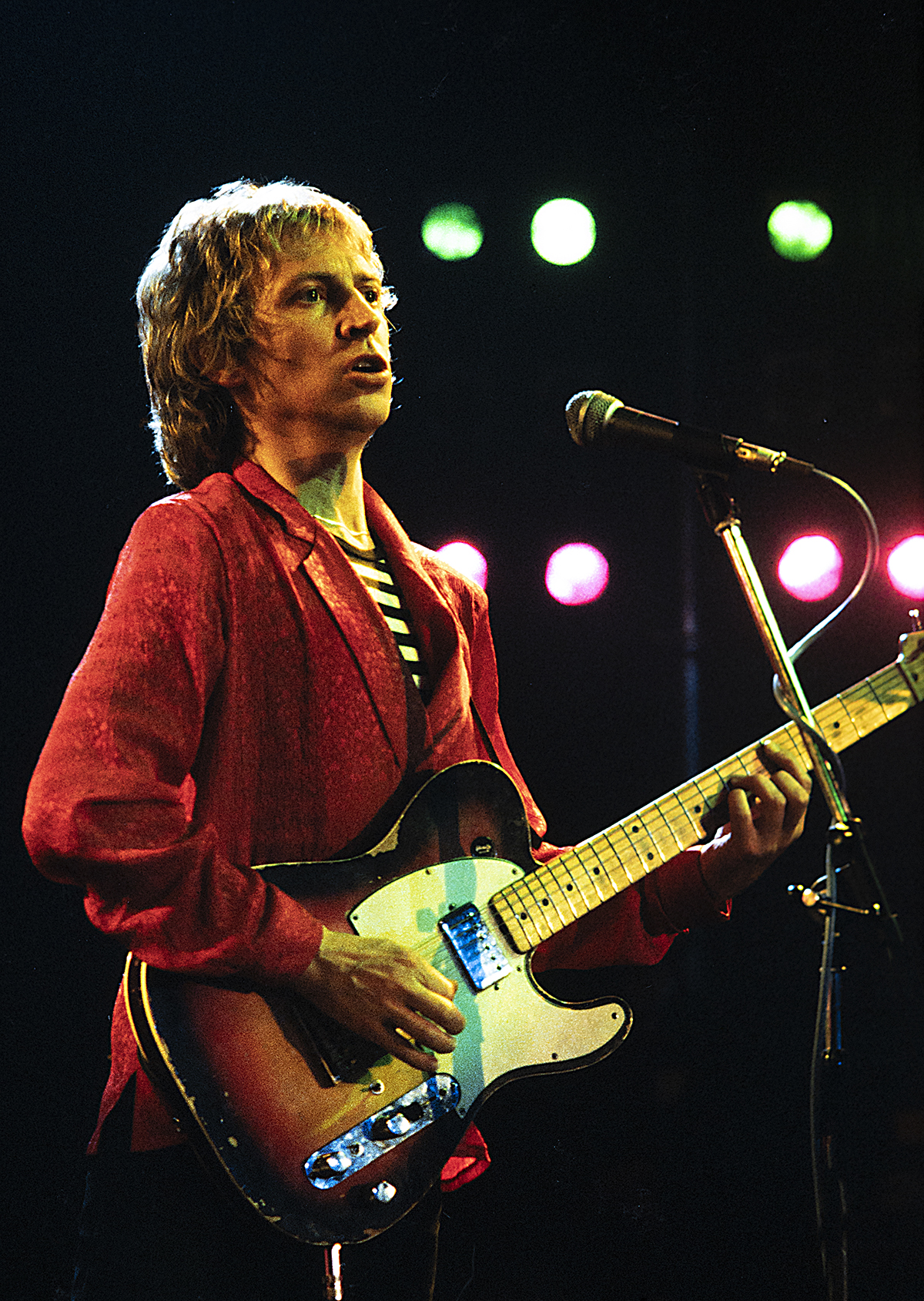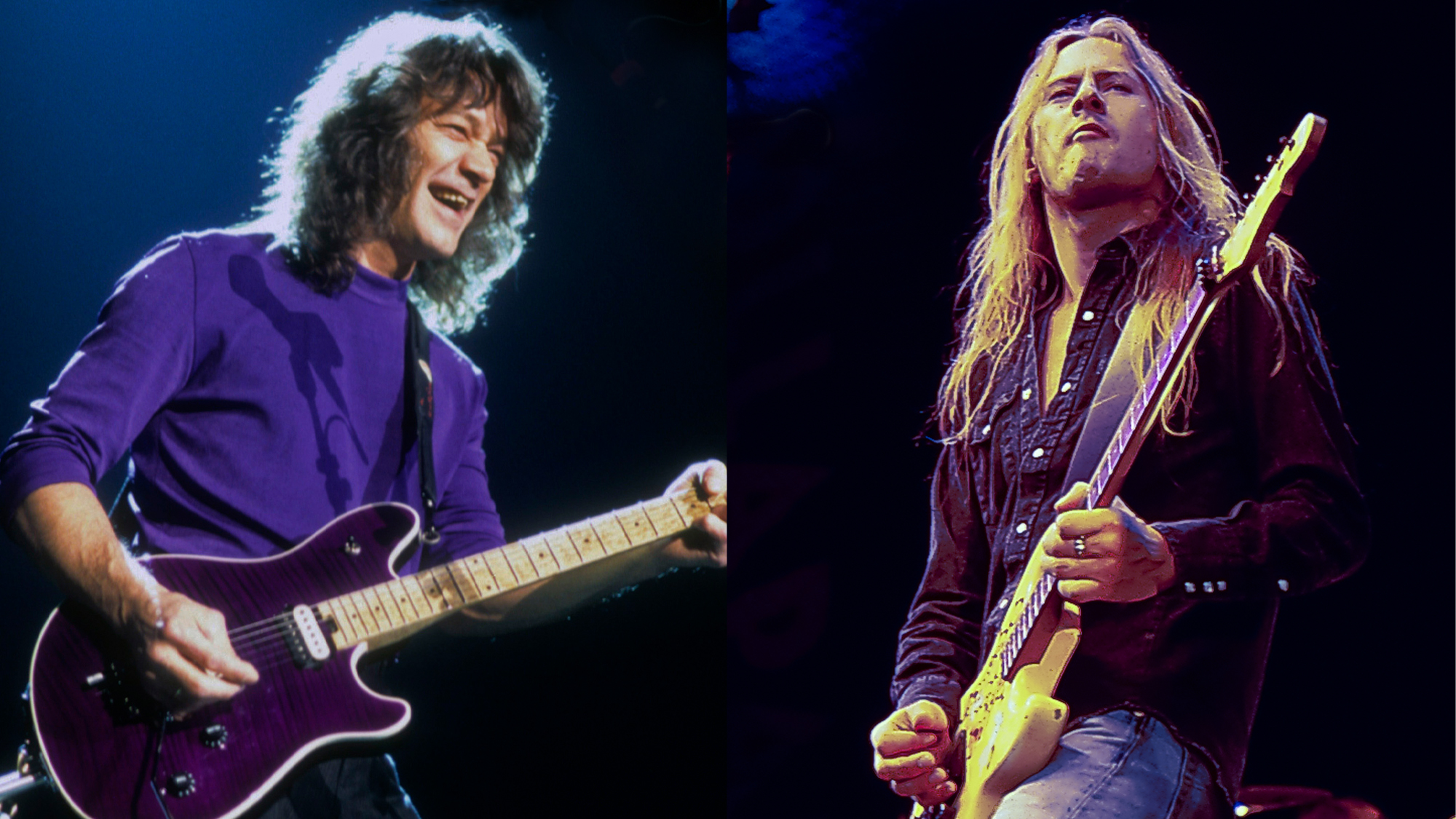"I had simple tools. All my sound and tone came from my hands and a few pieces of gear." How Andy Summers used chord fragments and an Echoplex to change the sound of rock guitar
The former Police guitarist told us how the group's evolution in the midst of punk led him to his breakthrough achievement as a singular guitar stylist

It may be difficult to appreciate nearly 50 years on, but when Andy Summers arrived on the rock scene with the Police in 1977, there was no one to compare him with. Using his Fender Telecaster, Fender Twin amp and a few effect pedals, Summers created an instantly identifiable and timeless guitar tone.
But it wasn’t just his tone. It was his fretwork and astute sense for when, where and how to fit his guitar lines into the propulsive rhythms provided by bassist Sting and drummer Stewart Copeland.
“There are so many reasons why we were a hit,” Summers told Guitar Player in 2022. “If I could narrow it down, I think the main thing about us was we didn’t sound like anybody else.
“It was something we were very conscious of. We didn’t want to sound like other bands. That was our natural instinct, but it could only have happened with the three of us. It’s a miracle of chemistry. If we were one person different, it would have been very different.”

Certainly, they would have been entirely different with anyone but Summers. The genius of Andy Summers, is that, by deconstructing rock, punk, jazz, classical music and blues, he created a sound and style that transcends time. He also explored sound design as something of a cinematic art, choosing to forge tones that didn't just enhance his melodic and harmonic forays but brought mystery, vibe and emotion to every electric guitar part.
The fact that he did this at the height of London’s punk movement is remarkable and demonstrates that the power of Summers’ approach — and the music of the Police — was in its subtlety.
“That was a trap we were aware of,” Summers told us in his June 2007 cover feature. “We started as a punk band, which lasted about five minutes because we weren’t really punks, but I think part of the freshness of what we did was because the tracks were so stripped down.
All the latest guitar news, interviews, lessons, reviews, deals and more, direct to your inbox!
Moreover, he had the balls to walk away from what music had been and develop his guitar approach into something truly original. Back in the late '70s, when rock audiences had already absorbed blues, prog, metal and punk, hearing the sound of his clean, chorused and echoing guitar spewing ear-opening chord inversions was like, well, walking on the moon.

Summers had already had quite a career before the Police. He’d performed with Zoot Money, the Soft Machine and the Animals, as well as played sessions with various pop artists. Given his history, he was somewhat shocked to find himself in the midst of England’s mid-1970s punk craze.
“When the punk thing happened, it was get punk or get out of town,” he said. “For me, it was a horrible lowering of musical values. It was difficult to play these very simplistic songs at breakneck speed with total distortion while the audience was gobbing at you. This was rough.
“And, of course, that was definitely what was going on in the very first incarnation of the Police. Happily, it wasn't long before we got out of that, and started to slowly develop our own thing.”
The Police found their own niche through reggae, a genre that — unlike the hard rock of Led Zeppelin and their ilk — was still embraced in the London music scene.
“Around Christmas 1978, Stewart loaned Sting his reggae collection, and Sting started picking up on that bass-line approach, which resulted in his leaving more space in the songs," Summers explained. "At the same time, I got an Echoplex. There was no thought about using it as a tool to create my own sonic identity — I just thought it was cool.
“And as I started reacting to what Sting was playing — or not playing — I organically began opening up even more space by using the Echoplex to play interesting harmonies and rhythms. Suddenly, I was in this crucible with this reggae bass line and a very idiosyncratic drummer who played a lot of hi-hat, and a signature style started to emerge.”
Summers took advantage of that sonic space. But whereas another player might have filled at every opportunity, he approached it more as a jazz guitarist would.
“First, I wanted to exploit the openness of the band's arrangements," he said, "so I couldn't play Steve Jones–style, punk power chords. That would be like a piano player with all 10 fingers on the keyboard — it’s too much.
“I decided to create more space and air by stripping my chords down to fragments,” he explained. “I'd seldom play full chords that had a major or minor third in them, which I considered old-fashioned harmony. Instead, I explored a much cooler, sort of disinterested chord style that utilized sacked fifths or an added ninth to get the harmony moving without the obvious sentimental associations of major and minor thirds.
“Then, I tried to fit my guitar in between the bass and drums, which probably came from listening to a lot of Miles Davis. For me, interesting music has a lot of counterpoint, so I've always been very adamant that the other musicians don't play what I'm playing. I want everybody to play different parts, because that's where you get some tension in the music. Particularly in a trio setting, having three different parts interlocking makes for a much bigger and much more interesting sound.”
Perhaps because he was adding so much harmonic interest to the music, Summers didn’t need to rely on tone tricks like others before him. He developed his sound with the barest of setups.
“I had simple tools,” he said, “a Telecaster, a Fender Twin and maybe an MXR Phase 90. All sound and tone came from my hands and judicious twiddling of knobs on the Twin. But by 1979's Reggatta de Blanc, more colors were in the mix. Basically, I added effects as I could afford them.
“The next thing I got was a chorus, and that, along with the Echoplex, became very characteristic of the Police sound. I probably got up to four effects pedals taped to the floor before it became apparent we were going somewhere, and, in fact, I could afford a custom Pete Cornish pedalboard with a Mu-Tron, a couple of fuzz boxes, an envelope filter, chorus units and phasers,all of which I'd combine with the Echoplex.”
The genius of Summers’ approach is evident throughout the Police catalog. As he’s revealed in previous conversations with Guitar Player, his approach is more about crafting memorable guitar parts, such as the finger-wrenching riff to “Message in a Bottle” or the instantly identifiable arpeggiations that make “Every Breath You Take” a hypnotic listening experience.
“It's now past two billion plays on Spotify,” he told us back in 2024, “so it is actually the most-played song of all-time history. Which makes my guitar riff one of the most-played riffs in history. Not too shabby.”
Summers has also detailed some of his key sessions with the Police in previous conversations with Guitar Player. As always, his insights offer new ways to appreciate the group's music and his contributions to rock guitar.
- Christopher ScapellitiGuitarPlayer.com editor-in-chief


